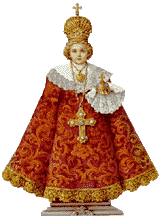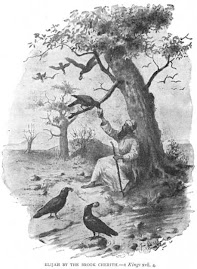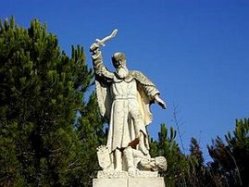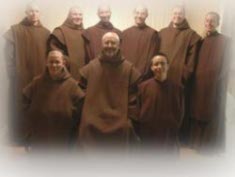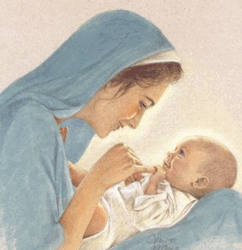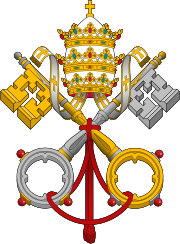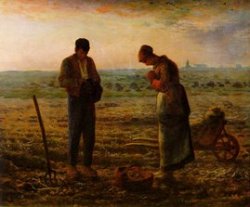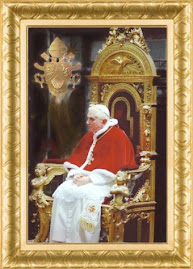 VIVA CRISTO REY!
VIVA CRISTO REY!"And Pilate asked him: Art thou the king of the Jews? But he answering, saith to him: Thou sayest it" (Mark 15:2).
If, as had been said by respected Catholic historians, the thirteenth century was the greatest of the centuries in the history of the Church and of the Reign of Christ the King, it nevertheless was, at its conclusion, the time when the process of decay began. This process has continued ever since. Men's public and national acknowledgment of God's plan in the Creation and Redemption of mankind has progressively, and with increasing alacrity, faded into obsolescence, even into virulent rejection. This sad process has been, from time to time, dramatically hastened by various events that can be recognized as significant phases of this process of decay in that they summarize all their insidious antecedents. One of the more recent events of this tragic process was the emergence of Freemasonry with its duplicitous shibboleth: "libert, egalite, fraternite." It seduced the "Eldest daughter of the Church" to trade her allegiance to Christ the King for the chains of Satan and his terrorists. The French Revolution planned and implemented by Freemasons brought about this dramatic and radical transformation between 1789 and 1791. Masonic Lodges were soon established in South America, and at the General Convention in Buenos Aires in 1906, it was resolved that, amongst other things, religious persecution should be begun and carried on zealously by every possible means. Mexico is a typical example of the rapidity with which the closing stages of disruption may be carried through. That Mexico was ripening for the Masonic harvest we learn from an article by A. Preuss, which appeared in the Fortnightly Review of 15th October, 1913. The distinguished writer, in describing the state of religion in Mexico, pointed out that the Indians had never lost the faith taught them by the first Spanish missionaries, but that, while the Mexican women were devout and pious, the men of the so-called educated classes were mostly Masons. He adds that the often assisted, on Sundays, at the spectacle of men accompanying women to the door of the church, but then lighting a cigar and sitting down outside the church until the end of Mass. Doubtless, he comments, it would be wrong to say that all men behave this way, but the number of those who do so is considerable. They are the "liberal" as opposed to the "fanatical Catholics." No wonder then that, when persecution came, so many women, but relatively few men, were found staunch. The triumph of Naturalism was celebrated by the solemn conferring of the medal for Masonic Merit on President Calles of Mexico by the Supreme Council of the Scottish Rite, while the American Masonic Review, Masonic Tidings, in its August (1926) issue, extolled in flattering terms of the same "strong character." The press of the world, after having made no attempt to inform its readers of the real causes of the events chronicled about Mexico, nor of the lengthy preparations for them, discreetly lets the curtain fall on yet another country from which Our Lord has been expelled. Father Miguel Agustin Pro, S.J. fell before a firing squad in Mexico City on November 23, 1927, accused of trumped up charges out of hatred for his zeal for Christ the DivineKing. His execution and death are known to be as follows: In Father Pro's case, President Plutarco Calles, the Masonic Communist, wanted the execution to be a "big show " and had instructed his underlings to invite representatives from all the government secretariats, the press and photographers. His intention was to show the Catholics as groveling cowards. Instead, the photos spoke eloquently of their heroism. After the execution, an attempt was made to recall the photographs, and possession of them was made a crime. But the damage had been done. The world had seen. Today the photos bear mute testimony to the bravery of the first martyr for Christ the King. At 10 am, Father Pro was led out of his narrow cell to execution. Carrying his small crucifix and his rosary, he walked steadily across the yard. At his request, Miguel asked to be allowed to pray. He knelt in front of the bullet-pocked walls and fervently prayed briefly. He kissed the crucifix and stood. Rejecting the traditional blindfold, Miguel stretched his arms out in the form of a cross and facing the firing squad said, "May God bless you. Lord, you know that I am innocent. With all my heart I forgive my enemies." As the firing squad took aim, Father Pro pronounced his last words. In a firm, clear voice, he exclaimed: "Viva Cristo Rey!" Long live Christ the King. The firing squad was shaken by Pro's unflinching heroism; the bullet wounded, but did not kill him. Then a soldier walked over and shot him at close range, killing him.
Although Calles had forbidden any public demonstration, the people acted in open defiance. Never had the city seen such an enormous turnout for a funeral. As the martyr's casket left the house, a spontaneous cry went up "Viva Cristo Rey!" Thousands thronged the streets and balconies, throwing flowers, praying the rosary and singing. It was a triumph, a glorious witness to the heroism of the martyr for Christ the King.
After "Fatima Findings" - a monthly bulletin of The Reparation Society of the Immaculate Heart of Mary
"Christ, King of Nations" - booklet from OLRL
